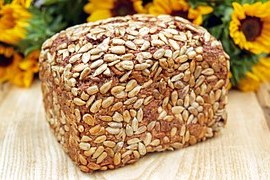Protein is one of the essential nutrients that play a major role in how the body functions. It’s, therefore, necessary to get enough amounts of protein in your vegetarian diet. However, one of the challenges is to find the best alternative proteins for vegetarians. Fortunately, there are many non-animal foods, such as nuts, legumes, grains, seeds and more that contain high concentrations of protein. By consuming a variety of these non-animal products, you can meet the required daily protein intake. Here are some of the best vegetarian protein sources:
-
Nuts and Nut Butter
 All types of nuts contain high concentrations of both protein and healthy fats, making them one of the best alternative proteins for vegetarians. Nuts, such as cashews, pistachios, and almonds contain 5g – 6g of protein per ounce and 160 calories. It’s, therefore, important to eat nuts that are dry roasted or raw. Additionally, nut butter, such as almond butter and peanut are also good sources of protein.
All types of nuts contain high concentrations of both protein and healthy fats, making them one of the best alternative proteins for vegetarians. Nuts, such as cashews, pistachios, and almonds contain 5g – 6g of protein per ounce and 160 calories. It’s, therefore, important to eat nuts that are dry roasted or raw. Additionally, nut butter, such as almond butter and peanut are also good sources of protein.
-
Legumes is one of the alternative proteins for vegetarians
Legumes usually include some of the best protein sources in your diet, such as black beans, lentils, soy, peanuts, and chickpeas. Also referred to as garbanzo beans, chickpeas are also the best protein source for vegetarians. They can be easily tossed into salads and pureed into delicious humus, or salted and fried as a crispy snack. These legumes contain about 7.3g of protein in only half a cup. They are also low in calories and high in fiber. In addition, Foods that belong to legume family are often good vegetarian protein sources, and since peas belong to this family, they are no exception. One cup of peas contains about 7.9 grams – the same as a glass of milk. If you do not like peas as a side meal, try to blend them into a pesto.
-
Wheat and Grains
 Wheat and some other grain products are good alternative proteins for any vegetarian. For instance, two slices of whole-wheat bread can offer 5g of protein, and a cup of cooked brown rice can provide 5g of protein as well. Additionally, quinoa (technically a seed) contains more than 8 grams/cup – including all the nine essential amino acids, which the body needs for repair and growth, but can’t produce on its own. This is contrary to most grains that contain very small amounts of protein. Because of that, quinoa is usually referred to as a perfect protein.
Wheat and some other grain products are good alternative proteins for any vegetarian. For instance, two slices of whole-wheat bread can offer 5g of protein, and a cup of cooked brown rice can provide 5g of protein as well. Additionally, quinoa (technically a seed) contains more than 8 grams/cup – including all the nine essential amino acids, which the body needs for repair and growth, but can’t produce on its own. This is contrary to most grains that contain very small amounts of protein. Because of that, quinoa is usually referred to as a perfect protein.
Conclusively, besides these great vegetarian protein sources, edamame, chia seeds, lentils, beans yogurt are also some other sources of protein you can consider.
